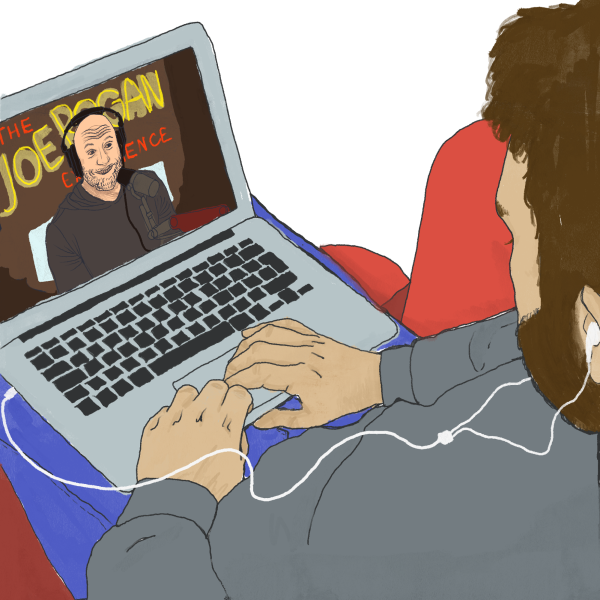Unpopular Opinions: “It’s Okay to be White” Posters Should Not Have Been Taken Down
On November 1, posters with the phrase “It’s Okay to Be White” were hung up across Colgate’s campus and dozens of other colleges around the world in what is suspected to be an international trolling campaign against the political left.
Colgate students and faculty expressed outrage, deeming the posters and their message to be a symbol of white supremacy. In response, the university ordered custodial staff to remove them, citing a university policy that all posters must have the sponsored organization’s name.
It should first be recognized that the aforementioned policy has a history of receiving selective enforcement and continues to exist because it does so. If the Alan Dershowitz posters were taken down in accordance with this policy, students would have likely demanded the policy’s immediate removal. However, because the policy continues to be enforced in a way that appeals to the campus’ ideological and social culture, it rarely receives notice or criticism.
Given this dubious history of policy application, it is fair to assume that there was a conscious decision made by the university to take down the posters that extended beyond simple policy enforcement. And while the decision was likely carried out with good intentions, the administration responded poorly.
The problem with removing these posters is twofold. First, the accomplishment of the likely goal underlying the posters was dependent on the university’s visceral rejection of the posters themselves. By removing them and saying that the statement represents white supremacy, the university faithfully played right into the likely motivation behind the poster. And no, this was very likely not an attempt to recruit liberal arts students into the white supremacist movement, as some at Colgate have suggested.
More likely, the posters were put up with the expectation that ridiculous accusations of racism and white supremacy would come forward from the left, emphasizing their absurdity to the world. And recent race-related assertions like “milk is racist” and the “okay” hand gesture as a white supremacist symbol certainly have not helped.
While removing the posters might have been done in the name of fighting white supremacy, responding in such a way only benefits the cause that put them up in the first place.
The second issue arises from the disruption of one of the main tenets of a university: the exchange of ideas. Since the posters first appeared on college campuses last year, there has been debate surrounding them and their message. This debate has not only pertained to the posters’ suspected source, as many link its origin to anonymous, alt-right chats on Reddit and 4chan, but also to the message itself.
Some view the statement “It’s okay to be white” as a general statement of equality, arguing that just as it is okay to be black, Asian, Hispanic, etc., it is okay to be white, and to reject that idea is to reject racial equality. Others hold that implicit in the statement is the suggestion that there is marginalization in being white, believing that the statement is unnecessary and better applied to identities that experience true marginalization in society. Some believe the statement challenges academic disciplines which assert the idea that the inherent privilege in being white makes it something to be ashamed of. Finally, there are those who stand in direct opposition to the statement as it is, believing that the systematic advantages that benefit whites make being white in certain circumstances problematic.
I am not here to defend any of these arguments, nor can I successfully present all of the arguments that exist surrounding the statement. However, creating an environment where ideas and opinions can be presented, debated and allowed to stand on their own merit should be one of the foundational principles of a university.
Consider, for example, if Colgate had removed the Dershowitz posters in accordance with university policy. Not only would the university have lost an opportunity to hear an unspoken opinion regarding Dershowitz, but we would have lost the opportunity to have important, subsequent conversations regarding the poster, sexual assault and due process.
In the future, the university should consider changing the current policy on campus advertisement to be in accordance with their statement on freedom of expression, enabling members of the university to freely express and challenge ideas. Or, alternatively, the university should exercise the current policy indiscriminately, removing any poster without the sponsoring organization’s name.
While I, like many others at Colgate, strongly oppose the motivation of provoking people politically, especially when an alt-right sympathizer is potentially behind it, removing the posters was an inappropriate response from the university. In my opinion, the best way to beat a bad idea in almost any circumstance is not by silencing it, but by presenting a better one.
Contact Connor Madalo at cmadalo@colgate.edu.







